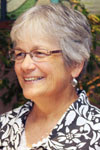Who Said It Was Easy Being Christian?
 I read recently that students in the high school
graduating class of 2016 or 2017 will be the first to have no personal memory
of the events of 9/11. They will know
only what they have read and been taught.
Thus, what is written and what is said (both in and out of the
classroom) can enormously influence the worldview of these impressionable young
people, who will grow to lead us into an unknown future. What they read and hear could cause them to
live life either cynically and in fear, or in hope. What they read and hear could cause them to
see themselves as independent beings or as integral parts of an interconnected
worldwide family and Mother Earth who sustains it. What they read and hear could mean an
increase in suspicion and oppression of the ‘other’ or to a healthy curiosity
and welcoming of the rich diversity offered to all of us, by each of us.
I read recently that students in the high school
graduating class of 2016 or 2017 will be the first to have no personal memory
of the events of 9/11. They will know
only what they have read and been taught.
Thus, what is written and what is said (both in and out of the
classroom) can enormously influence the worldview of these impressionable young
people, who will grow to lead us into an unknown future. What they read and hear could cause them to
live life either cynically and in fear, or in hope. What they read and hear could cause them to
see themselves as independent beings or as integral parts of an interconnected
worldwide family and Mother Earth who sustains it. What they read and hear could mean an
increase in suspicion and oppression of the ‘other’ or to a healthy curiosity
and welcoming of the rich diversity offered to all of us, by each of us.
We are teachers accountable to our children and the
future we are asking them to be part of.
What are we saying to them and to each other? Do we speak
words of mercy, compassion, love and inclusivity? Do we live what we speak? Are we willing to take a stand and call out
the fear mongers among us, all the while recognizing even they are beloved children of God?
Kathy Flynn, OP
Sinsinawa, WI




Comments
Post a Comment